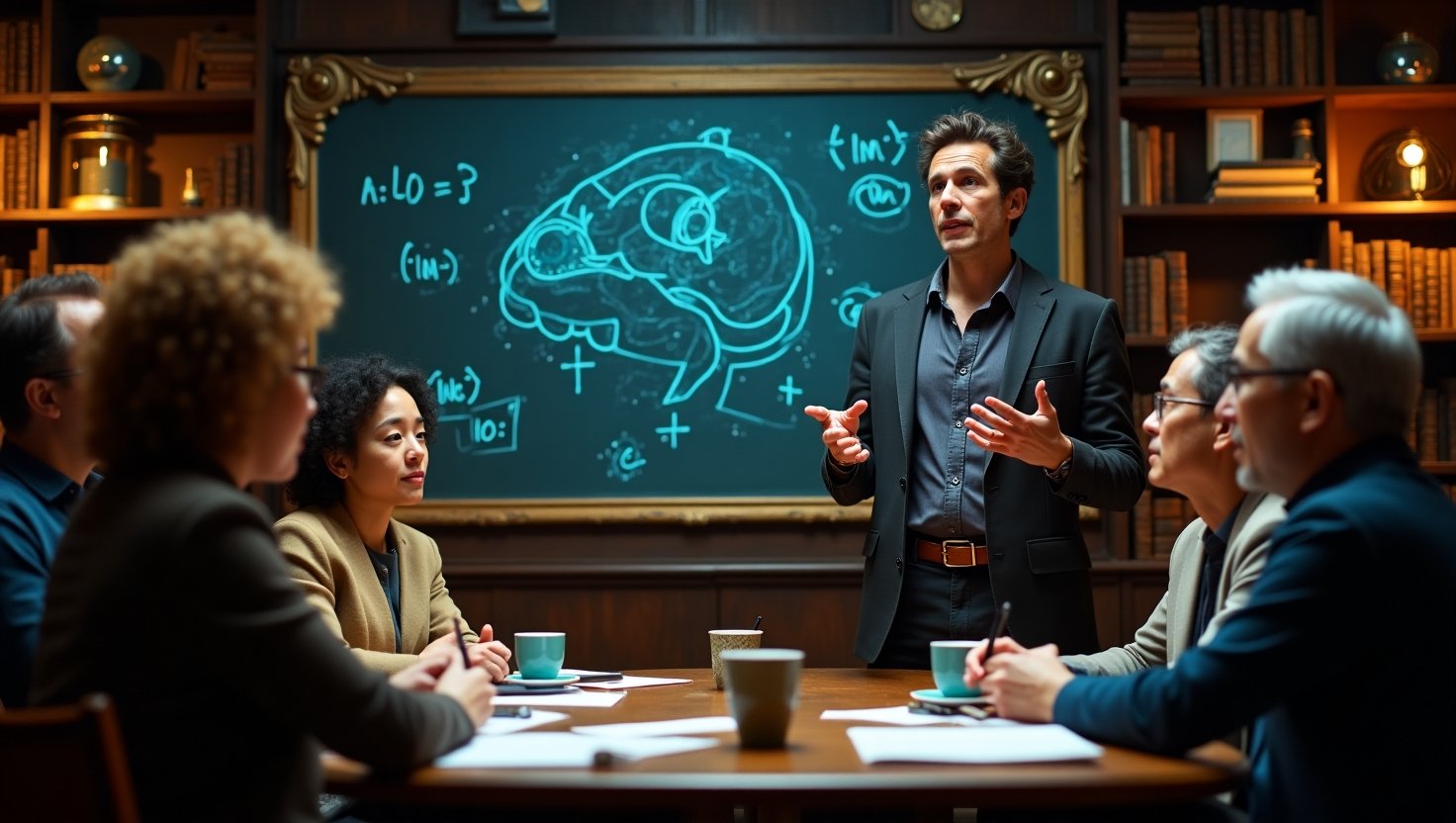The Future of AI Creativity: Paul Pope, Killer Robots, and Plagiarism Concerns
Introduction
The transformative wave of AI Creativity is crashing onto the shores of artistic professions, bringing both innovation and anxiety in its wake. Comic artist Paul Pope, a revered figure in modern comics, is stepping back into the industry spotlight, but his outlook is shaded by concerns. As he reemerges, Pope voices trepidations about how artificial intelligence is not just a tool but a potential adversary—or even a \”killer robot\”—threatening the sanctity of creative expression. In this article, we dive into the shifting sands of artistic domains plagued by issues of plagiarism and AI ethics, underpinning the call for a robust dialogue on the future of creativity in the age of Artificial Intelligence.
Background
Paul Pope, known for his avant-garde approach to storytelling, has significantly influenced the landscape of modern comics. With a career that spans decades, his work has carved out a niche that embodies both artistic innovation and narrative depth. However, as reported by TechCrunch, Pope’s concerns lie not in copyright infringement or AI-driven plagiarism, but in the broader implications of AI—in particular, the specter of \”killer robots\” overriding human creativity itself.
The rise of AI in creative fields is reshaping how art is conceived and consumed. AI creativity tools enable machines to produce artworks, often indistinguishable from those crafted by human hands, propelling heated debates about AI ethics and copyright (or the lack thereof) in AI-generated content. These discussions question the very essence of authorship and ownership within this technologically driven revolution.
Trend
Artists across various disciplines have responded to these AI tools with a mix of intrigue and skepticism. Many embrace the potential for creativity in collaboration with AI, seeing it as an opportunity to expand their palettes and push boundaries otherwise confined by human limitation. Yet, there remains an undercurrent of tension: can AI-facilitated creativity ever match the depth and nuance of human emotion embedded within traditional art forms?
Public sentiment is divided, with some echoing concerns similar to Pope’s about AI potentially becoming more ominous than mere plagiarism threats. Describing it with urgency, Pope has been quoted stating, \”I’m less concerned about having some random person create some image based on one of my drawings than I am about killer robots and surveillance and drones.\”
Insight
The juxtaposition of traditional art practices with the digitization of creativity demands a reconfiguration of ethical considerations. Artists and developers alike are navigating this delicate balance, where digitization offers vast potential yet threatens to diminish the authenticity of artistic expression. The moral responsibilities of those who wield AI’s creative capabilities are substantial—how we choose to harness AI’s generative power could either enhance or erode the value of traditional art forms.
Forecast
Peering into the crystal ball, the influence of AI on artistic professions appears inexorable. AI’s role, while currently collaborative, might become more autonomous as technology evolves. Paul Pope predicts, \”I think we’re probably, honestly, about two years away,\” alluding to an impending paradigm shift within the industry that necessitates preparedness and adaptability.
In the next few years, we expect AI to become even more entrenched in creative processes, possibly challenging existing frameworks of creative ownership and ethical boundaries. The dialogue surrounding these issues is crucial, not only to safeguard the interests of artists but to ensure that technological advances align with humanistic values and rights.
Call to Action
Engagement in the ongoing dialogue about AI creativity is more pressing than ever. Support Paul Pope’s endeavors by staying updated on his latest projects and advocating for fair and ethical AI practices within creative industries. As AI looms large on the horizon, the collective voice of artists, technologists, and audiences will shape whether this future is one of enrichment or apprehension.
For more insights, explore the related articles that scrutinize AI’s burgeoning role in creative fields, and consider how industry leaders like Pope are navigating these uncharted waters. Let your thoughts be part of the change—voice your opinions on AI ethics and help steer the digital revolution responsibly.
Related Articles: Cartoonist Paul Pope is More Worried About Killer Robots Than AI Plagiarism via TechCrunch.

